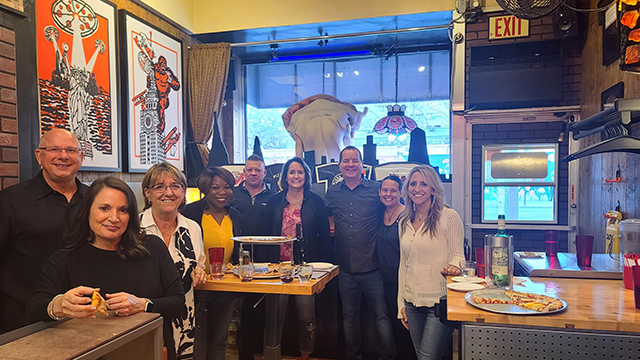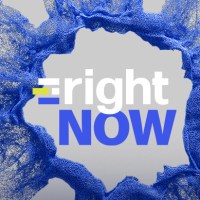I recently participated in the New Horizon Group (NHG) think tank hosted by the AICPA. The group discussed key trends and opportunities impacting the accounting profession. The NHG consists of a dozen leading consultants with a broad reach across multiple disciplines.
NHG has met for more than two decades with the express purpose of understanding the needs and opportunities of the accounting profession. The group works to advance solutions through individual consulting, speaking and writing efforts. Below are some key takeaways from this year’s meeting:
AICPA Response to Staffing Crisis
COVID saw many CPAs leave public accounting as well as a reduction in the accounting staff pipeline. Declining university enrollment in accounting programs has piled on to the accounting staffing shortage. On top of that, the AICPA noted there has been a 10% decrease in the number of US accountants sitting for the CPA exam. That will have a long-term impact on the profession.
Some observers attribute these trends to the additional hours required by the 150-hour rule and the requirement to pass all parts within 18 months. Students feel that 18 months is too short a time frame in today’s working environment. Changing values of the younger generation have made the stereotype of the accounting profession even less attractive than other majors. Other fields of study have lesser requirements and provide higher starting salaries.
The AICPA is targeting initiatives to reduce these barriers to entry as well as to appeal to a broader, more inclusive pool of accounting candidates. Some potential changes would include doubling the time frame to pass all parts of the exam to three years and providing cost-effective online courses for the additional 30 hours required.
AICPA and NHG members all agreed that accountants need to work on improving awareness of the impact that firm culture has on the attractiveness to the profession. Also, we need to find a way to change the practices of traditional partners hanging onto the “grinder” mentality.
Credentialing Under Attack
There is a movement across US state legislatures to slash licensing requirements across the entire spectrum of careers. That includes beauty aestheticians, teachers, doctors and engineers, as well as accountants. So far in 2023, there have been 72 bills introduced in 28 jurisdictions to eliminate or reduce licensing for professional and occupational jobs.
In Arizona, one of the most recent initiatives was to remove the requirement of a college education for teachers. While these rules are being “sold” as a way to cut government bureaucracy, the impact will be detrimental. Anyone could enter any profession without any minimum requirement of training or experience. The same goes for tax preparers, accountants and auditors.
Within the accounting profession, there is also a concern that some states will try to reduce the 150-hour requirement. The AICPA wants firms to understand that this requirement, along with the other standardized requirements to be a CPA, has allowed for reciprocal mobility of CPA licensing across all states. This is particularly important today with so many people working remotely in other states.
In fact, while there has been a decline in domestic students sitting for the exam, international CPA exam test takers have increased by 6% (particularly in India and South Korea). That may alleviate some of the staffing shortages in the US via overseas outsourcing.
AI Transformation and Change in the Accounting Profession
Much of the current hype around artificial intelligence in accounting is focused on using ChatGPT (and similar AI tools) for developing marketing content or responding to research queries. However, I believe the real value is in customized accounting training. Customized training will make AI chat tools “virtual assistants” in handling some of the more mundane components of our jobs.
A slew of startups, accounting firms and major software vendors are all rushing to figure out how to utilize these tools to identify accounting anomalies, respond to client inquiries and even do complex tax calculations. Essentially, they’re looking at training the AI based on their individual experiences and knowledge.
However, client-identified or actual confidential data should never be used in such tools. Data can become part of the AI’s knowledge and therefore be available to anyone else using the AI.
This occurred recently when a group of Samsung engineers typed in highly confidential meeting notes and source code into the AI to use its cleanup/decoding capabilities. The group inadvertently created a top-secret corporate breach. All firms need a person on staff to monitor AI breakthroughs and potential impacts on their firms. They also need a policy explaining how to use AI tools.
Hearing from Gen Z
NHG members had the opportunity to dine with three junior staff members from a major New York CPA firm. The group heard their thoughts on the accounting profession and their career progression. (They were still in the heat of busy season.)
We were impressed with the professionalism and positive focus they displayed. The consistent theme was that they chose accounting because of the very broad opportunities and career paths open to them. Starting just before or during COVID, and primarily working remotely, provided them with a very different viewpoint. They adopted digital technologies as a normal course of their learning. And they also looked at coming back into the office two to three days a week as a “new” experience.
Gen Z shared that college courses did not effectively prepare them for the actual accounting work they were doing. The initial focused training they received from the firm was paramount to their success. They also stated that they benefitted significantly from clearly defined work expectations and comprehensive explanations of career paths available to them.
Surprisingly, while they were aware of firm financial metrics and profitability, they were not aware of how much firm owners made. They were pleasantly surprised to discover industry metrics. NHG members stated that if owner metrics were shared at the university level, it might help attract more students to the profession. The big takeaway was how important a comprehensive learning and proactive mentoring environment was to the success of the firm.
New York Pizza School

Finally, rather than opting for the traditional sit-down dinner, the early arrivals to the NHG meeting participated in a New York Pizza School to learn the art of perfecting the city’s famous thin-crust pizzas. In addition to conjuring the dough from scratch and learning to “soft bongo” shape and “toss” the crust, we learned the secrets of properly layering and balancing ingredients along with optimum cooking techniques (no convection ovens!).
Each two-person team made four (yes, four) different pizzas and sampled the results of everyone’s efforts into oblivion. We learned the “best” pizza is the one you make your own favorite way! However, the most important takeaway was that getting your people outside of traditional routines and providing opportunities to experience different things broadens their horizons and deepens relationships and friendships!
***
Accounting works better in the cloud. Learn how to start your move to the cloud today.
Recommended Next


